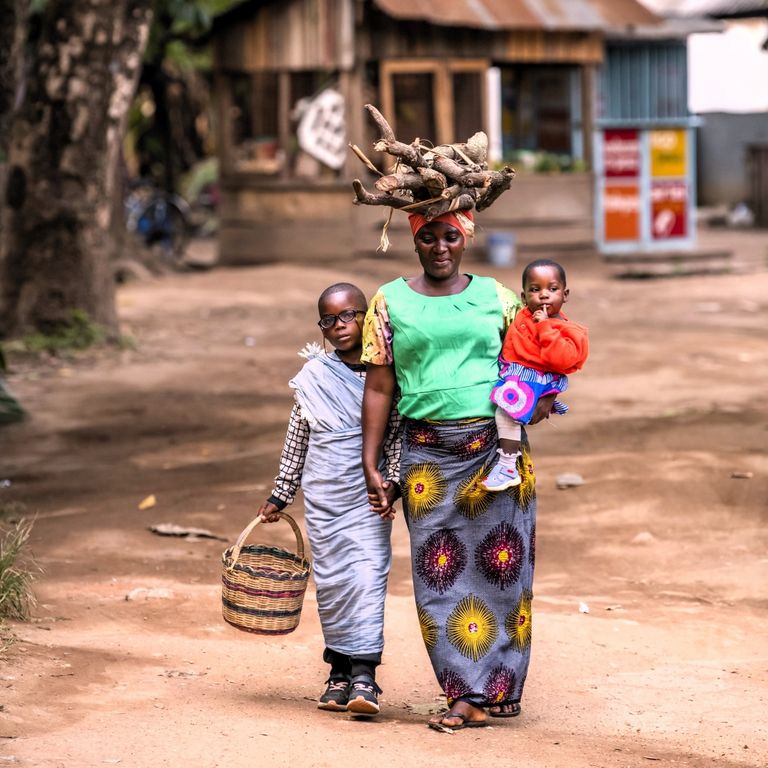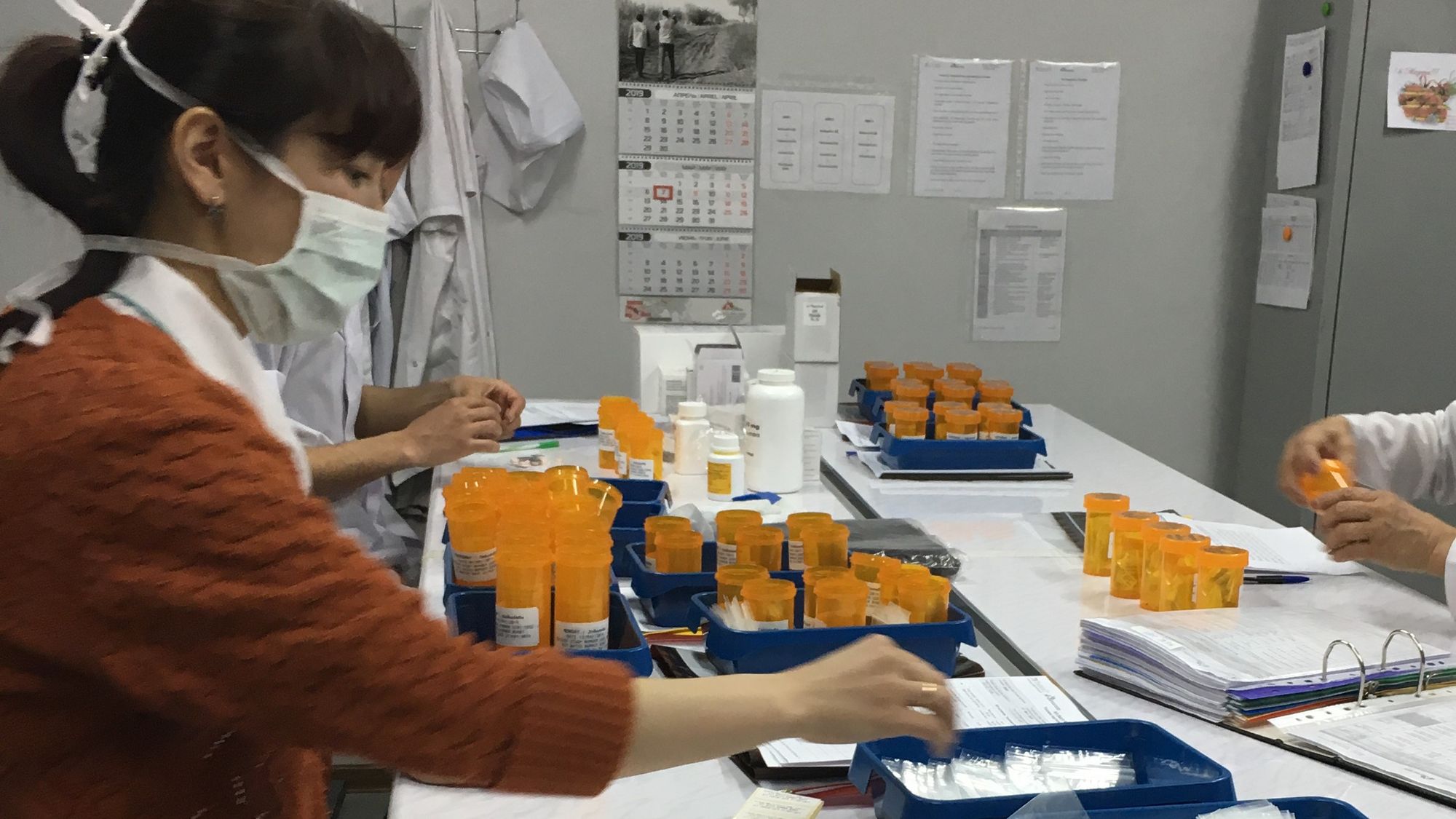

Tuberculosis - From Basic and Clinical Research to TB-Control
Swiss TPH is committed to alleviate TB related suffering, working on five continents both on human and animal TB, from basic research to health systems. Our activities span a wide range from the host-pathogen interaction, to the evolution of antibiotic resistance and the host immune responses to TB infection. Research at Swiss TPH also aims at better understanding how TB is being transmitted from one person to the next, and why some people are more prone to pass their TB to others. Swiss TPH conducts clinical trials of new TB diagnostics, drugs and vaccines in collaboration with our long-term partners at the Ifakara Health Institute in Tanzania and the National Centre for Tuberculosis and Lung Diseases in Georgia.
Co-Morbidities and One Health
A particular research focus has been the interaction of TB with other infectious diseases such as HIV/AIDS and helminthes, or with non-communicable co-morbidities such as diabetes or COPD (chronic obstructive pulmonary disease). Swiss TPH is also exploring the health and economic impact of TB at the human-animal interface in the frame of its One Health programme with a special focus on mobile pastoralists in Africa and Asia. This work also includes exploring the transmission of animal TB to humans, and performing cost-benefit analyses of disease elimination campaigns in countries where bovine TB remains an important problem.
Health System and TB Control
No control efforts can be made effective unless there are efficient and resilient health systems to deliver services and new control tools. Our work has been instrumental in advising the World Health Organization on drug management issues and in providing independent evaluation evidence of large TB control programmes in low- and middle-income countries. We routinely monitor TB programmes in such countries from a programmatic perspective for Global Health Initiatives. Moreover, we recently performed studies in Switzerland on health providers’ and immigrant patients’ behaviours with respect to TB and in Eastern Europe and Central Asia on factors that determine treatment outcome among patients with drug-resistant TB.

Units and Groups working on Tuberculosis
Basic Research at Swiss TPH

Co-Evolution: Tuberculosis-Bacteria and Immune Systems
Swiss TPH studies the co-evolution of tuberculosis (TB) and the human immune system. I.e. Studies show that the TB-antigens recognised by the immune system exhibit similar genetic traits between different strains. This near lack of antigenic variation creates an advantage for the TB-bacteria. During a TB-infection, these highly conserved antigens provoke a severe immune response. This enables the bacteria to enter the lungs from where they are easily transmitted from human to human by coughing.
Publication | Coscolla, M. et al (2015). Cell Host Microbe 18:538-548
Contact
Clinicial Tuberculosis Research at Swiss TPH
New drugs and drug combination regimens are urgently needed to tackle the global TB pandemic aggravated by the increasing spread of drug-resistant strains. As a member of several collaborative partnerships, Swiss TPHis carrying out clinical research with the aim to improve detection, treatment and prevention of TB and to strengthen health systems to improve health outcomes in the affected communities.

…in collaboration with the Ifakara Health Institute (IHI) in Tanzania
Tanzania is one of the world's 30 TB high-burden countries. Swiss TPH has a long-lasting partnership with the Ifakara Health Institute (IHI) in Tanzania. This collaboration finds expression in a broad spectrum of TB research conducted in Bagamoyo, Dar es Salaam (Mwananyamala and Temeke) and in Ifakara. Swiss TPH and IHI are maintaining a prospective, multi-site TB cohort study as a backbone of a variety of innovative research projects.
The TB research activities in Tanzania include clinical trials on new TB treatment regimens and new TB vaccines, evaluation of new TB diagnostics, TB immunology, TB molecular epidemiology and TB co-morbities, such as HIV/AIDS and diabetes mellitus.

...in collaboration with the National Center for Tuberculosis and Lung Disease (NCTLD) in Georgia
Georgia is a country with a high-burden of multi-drug-resistant TB which poses particular challenges to treatment of patients and disease control. Swiss TPH and the Georgian NCTLD have agreed to a close collaboration in the field of biomedical and public health TB research. The joined clinical research focuses on evaluation of new diagnostics, the conduct of clinical drug trials and on transmission studies.

Contact
Funding
Project Sites
Treatment of Multidrug-Resistant Tuberculosis

Pragmatic Clinical Trial for a More Effective, Concise and Less Toxic MDR-TB Treatment Regimen
Contact
Further Information
One Health: TB in Animals and Humans

Epidemiology and Control of Bovine TB
The Human and Animal Health unit works since twenty years on the epidemiology and control of bovine tuberculosis in African countries. The unit investigates the potential of zoonotic transmission of Mycobacterium bovis, the molecular epidemiology and cost of disease. Most recently, members of the group estimate the cost of control and elimination of M. bovis to Morocco.

Mauritania: TB in Pastoralist Communities
We found an overall crude incidence of 933 cases/100,000 during a population-based survey in remote Mauritania. TB prevalences were high among both pastoralists and villagers. None of the presumptive cases sought prior diagnostic testing. TB diagnostic centres in the remote rural study zone were poorly equipped but these centres must remain in operation to reduce TB incidence in vulnerable communities in insecure remote rural zones and to reach national health goals. Read more
Co-Morbidities

Tuberculosis Increases the Risk of Diabetes
The first long-term study on diabetes in patients suffering from tuberculosis (TB) in Africa showed increased blood glucose levels in infected patients. Treatment with antibiotics led to a normalisation of blood sugar levels. The study suggests routine blood glucose control of TB-patients and argues for postponing a diabetes diagnosis until after completion of TB-treatment.
Publication | Boillat-Blanco, N. et al. (2016) Journal of Infectious Diseases 213: 1163–1172
Publication | Boillat-Blanco, N. et al. (2018) PubMed 345-353
Tuberculosis Monitoring
The Swiss Centre for International Health (SCIH) is involved with its Health Systems Support Unit and the Systems Performance Monitoring Unit in work related to tuberculosis. This includes the mandate as Local Fund Agent of the Global Fund for currently 10 countries. Most of these countries have TB grants.
MDR-TB Scale-Up Initiative 2007-2013
Swiss TPH together with UNITAID and its implementers facilitated MDR-TB (mult-drug-resistant tuberculosis) treatment for 17,000 patients from 19 low-and middle-income countries. Further we assessed the UNITAID-funded project EXPAND-TB which introduced new and rapid technologies and laboratory services to accelerate access to multi-drug resistant MDR-TB diagnosis in 27 low-and middle-income countries. This revealed about 140’000 detected drug-resistant cases.
Monitoring and Desk Audits for the Global Drug Facility
Swiss TPH gathered extensive experience on tuberculosis monitoring in missions for the Global Drug Facility from 2005 to early 2015. This includes data quality audits for the Global Fund on TB in seven countries.
Patient and Provider Delay among TB Patients in Switzerland
A study on patient and provider delay among TB patients in Switzerland – this study, financed by the Swiss Public Health Office, is performed in collaboration with five lung associations of Switzerland. Presentation of results is expected for late 2016.
Also financed by the Swiss Public Health Office is a recently concluded study on the level of TB knowledge among general practitioners of Switzerland (the main findings were published in the Swiss Medical Forum, 2016).
Drug-resistant Tuberculosis
In August 2016, the SCIH was selected by the Global Fund to conduct a special study that examines factors that contribute to favorable MDR-TB treatment outcomes in Eastern Europe/Central Asia (EECA). SCIH performed desk review from 20 countries of EECA and field studies in 5 of these 20 countries.
More recently, Swiss TPH performed in the frame of a long-term agreement with Unitaid a mandate related to drug-resistant TB.